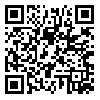BibTeX | RIS | EndNote | Medlars | ProCite | Reference Manager | RefWorks
Send citation to:
URL: http://ijme.mui.ac.ir/article-1-4628-en.html
Introduction: Challenges of clinical education have been described and explored from the viewpoints of nursing students in numerous studies, but few studies have deeply explained these factors from the perspective of nursing faculty members and nursing managers of teaching hospitals. The aim of this study was to describe and explain the experiences of nursing faculty members and nursing managers about the factors that affect clinical education effectiveness.
Methods: The study employed a conventional qualitative content analysis approach. Participants included 18 faculty members, clinical instructors and nursing managers of Isfahan University of Medical Sciences. Purposive sampling was conducted until data saturation. Data were collected through individual semi-structured interviews and field notes. All the interviews were recorded, transcribed and analyzed line by line. The data were analyzed using conventional content analysis.
Results: Qualitative analysis of the data yielded two main categories of restrictive and facilitating factors of clinical education effectiveness. Restrictive factors included four subcategories: physical and psychological atmosphere of training units, student density, lack of teamwork approach in caring and training, and inappropriate role models. Facilitating factors consisted of two subcategories: experienced and tactful instructors and competent clinical nurses.
Conclusion: The challenges of nursing clinical education effectiveness are the common concern of students, nurses, and nursing faculty members. Thus, considering the nature of the problems, cooperation of faculties of nursing and vice chancellors for treatment and education of medical universities is necessary to overcome these challenges.
Received: 2018/02/10 | Accepted: 2018/03/6 | Published: 2018/03/6 | ePublished: 2018/03/6
| Rights and permissions | |
 |
This work is licensed under a Creative Commons Attribution-NonCommercial 4.0 International License. |




